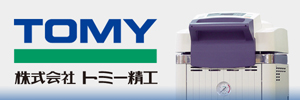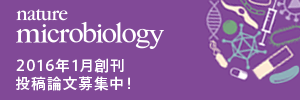PI-139 (JTK):Expression analysis of multiple alkane hydroxylases in Acinetobacter oleivorans DR1
1Department of Ecological Engineering, Korea Univ, Seoul, Korea
Genomic analyses has shown the presence of multiple alkane-hydroxylase system in diesel-degrading Acinetobacter oleivorans DR1. DR1 cells could grow on medium- and long-chain alkanes (C12-C30), but not short chain alkanes (C6-C10). However, all fatty acid forms (C6, C10, C16) of hydrocarbon could be utilized, which suggested the absence of either transport or alkane hydroxylase for short chain-alkane. DR1 cells could consume fatty alcohol forms, except decanol. Decanol appears to be extremely toxic to the cells. Northern blot analysis showed that gene encoding alkane monooxygenase homologues were differentially expressed. The AlkB1 (AOLE 10550) appears to participate in the degradation of both medium- and long-chian alkanes, but AlkB2 (AOLE 13390) is likely involved in medium-chain alkane degradation. Two AlmA homologues, but not two LadA homologues, were highly upregulated on both long-, and medium-chain length alkanes, indicating that they are major hydroxylases for degrading alkanes. Although taurine- and alkanesulfonate monooxygenases operons are present, DR1 cells cannot grow on both substrates. Alkanesulfonate cannot be used as a surfactant by DR1 cells becasuse no secreted surfactant was detected. Our data suggested that DR cells possess multiple alkane monooxygenases and cell-bound surfactant for degrading a broad range of alkanes. Upregulation of sulfate metabolism-related genes, such as cysN, cysD and cysU in the RNA-seq data was in accordance with growth defect on hexadecane, but not on acetate-succinate in sulfate-deficient condition, implying the requirement of sulfate during hexadecane degradation. Sulfate uptake appeared to be not involved in the biosynthesis of sulfate-derived surfactant. These data suggests that DR1 possesses multiple alkane oxidation with the upregulated sulfate-metabolism related genes, probably because of defect in charged ion transport with oily substrate.
keywords:sulfate,Acinetobacter oleivorans DR1,alkane degradation,transcriptome




